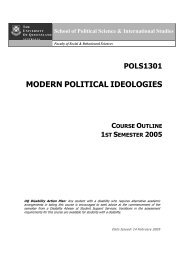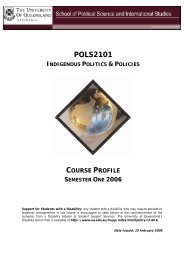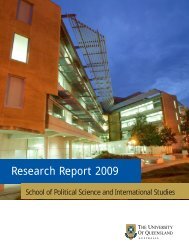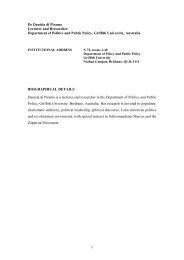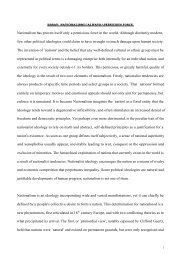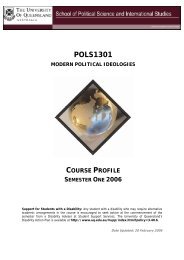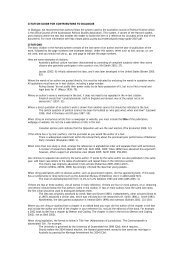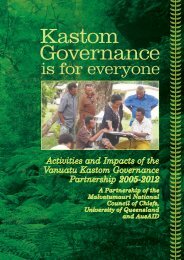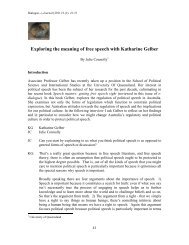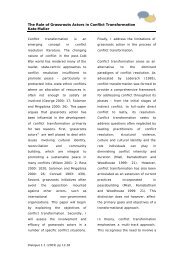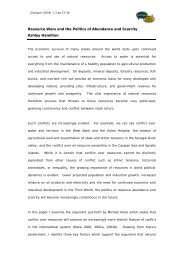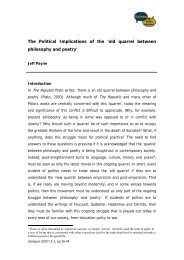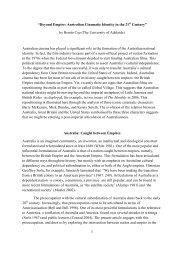Peace Support Operations: Lessons Learned? - School of Political ...
Peace Support Operations: Lessons Learned? - School of Political ...
Peace Support Operations: Lessons Learned? - School of Political ...
You also want an ePaper? Increase the reach of your titles
YUMPU automatically turns print PDFs into web optimized ePapers that Google loves.
PEACE SUPPORT OPERATIONS: LESSONS LEARNED?<br />
Shannon Tow<br />
addressed. In order to provide the<br />
degree <strong>of</strong> integration that a more<br />
successful PSO entails, a supranational<br />
response is required from an<br />
intergovernmental coalition.<br />
For these reasons, some analysts have<br />
suggested creating a UN standing<br />
army (United Nations General<br />
Assembly 1996). Yet issues <strong>of</strong> political<br />
will coupled with some member states’<br />
continued refusal to pay their UN debt,<br />
decrease the likelihood that any such<br />
force could be formed. One alternative<br />
might be conducting a number <strong>of</strong> joint<br />
peacekeeping training exercises under<br />
UN and regional auspices. Such<br />
measures would facilitate greater<br />
interoperability and common views on<br />
what tasks peacekeeping should<br />
actually entail. Initiatives that promote<br />
practical collaboration between the<br />
military and national NGOs might also<br />
provide for a more integrated future<br />
peacekeeping force. PSOs can make a<br />
difference only if such measures that<br />
seriously address these issues <strong>of</strong><br />
political will are pursued.<br />
1<br />
The term ‘consent’, in the peacekeeping context, implies the approval <strong>of</strong> the relevant local<br />
political authorities to peacekeeping activities.<br />
2 The term ‘peacekeeping actors’ is used in reference to both the military peacekeeping force<br />
itself, humanitarian agencies and troop contributing countries in a multinational force. The<br />
importance <strong>of</strong> the conflicting parties political will in realising a sustainable peace is also an<br />
important factor that affects the operational efficacy <strong>of</strong> PSOs. Due to reasons <strong>of</strong> space,<br />
however, this paper assumes this variable to be constant.<br />
3 The United Nations Protection Force was the principle peacekeeping force that operated in<br />
Bosnia-Herzegovina from 1992 to 1995.<br />
4 Intervention Force East Timor was conducted from 1999 to 2001, in the aftermath <strong>of</strong> the<br />
East Timor referendum for independence and ensuing militia violence.<br />
Dialogue 1:1 (2003) 8



